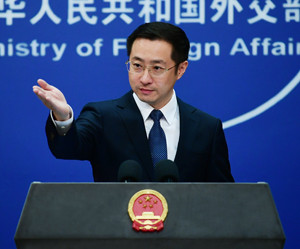China has recently taken on a significant diplomatic role by hosting reconciliation talks between the rival Palestinian factions Fatah and Hamas, amidst the ongoing conflict in Gaza. The discussions in Beijing have shown promise, with both groups expressing a willingness to bridge their long-standing political divisions for Palestinian unity.
During a press briefing, Chinese Foreign Ministry spokesperson Lin Jian highlighted the productive nature of these talks. "The Palestinian National Liberation Movement and Islamic Resistance Group representatives arrived in Beijing a few days ago for in-depth and candid dialogue," Lin stated, using the formal names for Fatah and Hamas. He further noted that both parties had agreed to "continue the course of talks to achieve the realization of Palestinian solidarity and unity at an early date."
The Beijing talks come at a critical time as Israel awaits Hamas's response to proposals aimed at ceasing hostilities in Gaza, including the return of Israeli hostages. A source close to Israeli Prime Minister Benjamin Netanyahu revealed that Israel would send a delegation to Cairo for further negotiations upon receiving a positive response from Hamas.
The United States has also weighed in on the matter, with White House national security spokesman John Kirby expressing support for China's mediation efforts. "If that's the outcome - that China is able to help convince Hamas to accept this deal, get those hostages home, then of course, that would be all to the good," Kirby remarked, signifying a rare moment of alignment in international diplomacy involving China and the U.S.
China's involvement is part of its broader foreign policy objectives, emphasizing stability and peace through dialogue. Beijing has consistently advocated for an immediate ceasefire in the ongoing Israel-Gaza conflict, which escalated dramatically last October following a Hamas offensive.
Historically, China has been a staunch supporter of the Palestinian cause and has advocated for a two-state solution to resolve the Israeli-Palestinian conflict. This stance is reflected in President Xi Jinping's call for an "international peace conference" to comprehensively address and potentially conclude the ongoing war.
The talks in Beijing have not only focused on the immediate cessation of hostilities but also on long-term governance and unity issues. Hamas has controlled Gaza since 2007 after a violent conflict with Fatah, which continues to administer limited areas of the occupied West Bank under the Palestinian Authority.
These reconciliation efforts were underscored by previous discussions held in Moscow earlier this year, where representatives from Fatah, Hamas, and other political factions explored the formation of a unified Palestinian government. China's recent initiative builds on these discussions, aiming to foster greater solidarity among Palestinian factions through sustained dialogue and consultation.




